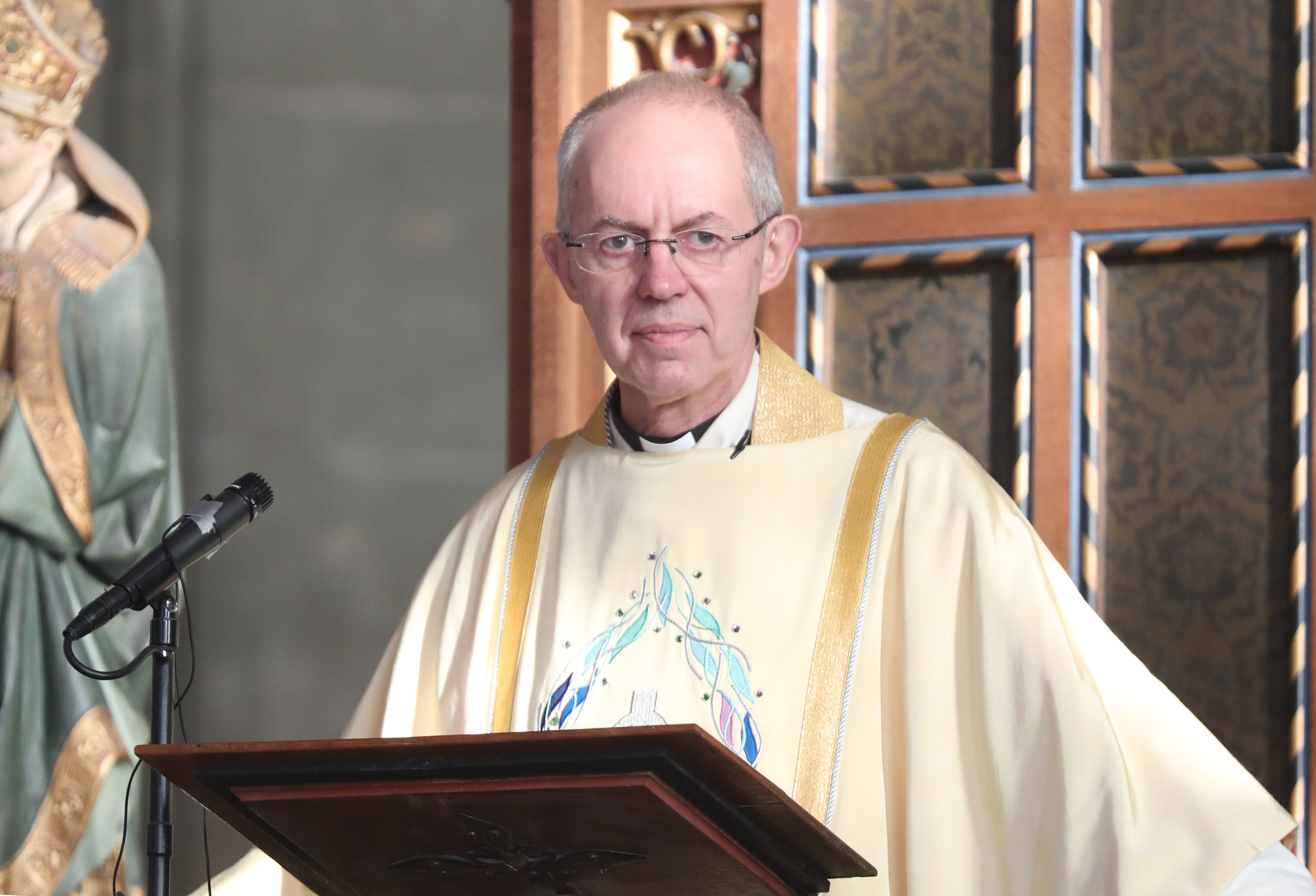Archbishop of Canterbury calls church’s slave trade links a ‘source of shame’
Church’s investigation found its predecessor fund had invested ‘significant amounts’ in trade of enslaved people

Your support helps us to tell the story
From reproductive rights to climate change to Big Tech, The Independent is on the ground when the story is developing. Whether it's investigating the financials of Elon Musk's pro-Trump PAC or producing our latest documentary, 'The A Word', which shines a light on the American women fighting for reproductive rights, we know how important it is to parse out the facts from the messaging.
At such a critical moment in US history, we need reporters on the ground. Your donation allows us to keep sending journalists to speak to both sides of the story.
The Independent is trusted by Americans across the entire political spectrum. And unlike many other quality news outlets, we choose not to lock Americans out of our reporting and analysis with paywalls. We believe quality journalism should be available to everyone, paid for by those who can afford it.
Your support makes all the difference.The Archbishop of Canterbury has apologised after research found the Church of England’s investment fund had links to the slave trade, calling it a “source of shame”.
The revelations came to light via an investigation commissioned by the Church Commissioners for England into the early ledgers and other original source documents from Queen Anne’s Bounty – its predecessor fund.
On Thursday, the Most Reverend Justin Welby and the Right Reverend David Urquhart announced the three-year probe had found the church’s investment fund had contributed “significant amounts” to the South Sea Company which traded in enslaved people.
Mr Welby said “this abominable trade took men, women and children created in God’s image and stripped them of their dignity and freedom”.
“The fact that some within the Church actively supported and profited from it is a source of shame,” he added.
“I am deeply sorry for the links with transatlantic chattel slavery that the Church Commissioners has identified.”
Founded in 1711 to refinance England’s national debt, the company was awarded the monopoly on Britain’s trade of enslaved people to the Spanish Americas.
The church’s recently published report estimated that the South Sea Company transported a little over 34,000 slaves “in crowded, unsanitary, unsafe and inhumane conditions” during its 30 years of operation.
By the time the South Sea Company ceased its slaving activities in 1739, Queen Anne’s Bounty had accumulated investments in annuities with a value of around £204,000 (equivalent to about £443 million today).
This income helped Queen Anne’s Bounty fulfil its purpose of supplementing the income of poorer clergy, and was likely reinvested, contributing to the overall accumulation of Queen Anne’s Bounty’s wealth, the research paper explained.
The Church Commissioners was formed in 1948 by merging two bodies, Queen Anne’s Bounty and the Ecclesiastical Commissioners.
The Archbishop said the research was commissioned to “gain an improved understanding of (the Church Commissioners’) history” and it was “only by facing this painful reality that we can take steps towards genuine healing and reconciliation”.
He added: “This is a moment for lament, repentance and restorative action. I pray for those affected by this news and hope that we may work together to discern a new way forward.”
The Church Commissioners will now form a group to consider the research as well as how to respond to its findings, with further information to be shared in “due course”.